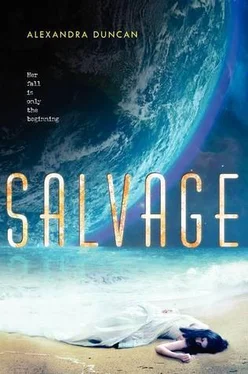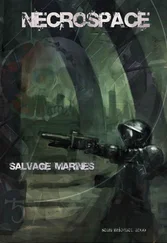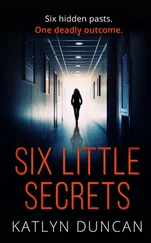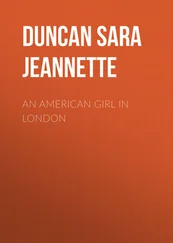We slip through the door and join the line inching down a hallway. Chai wallahs and vendors selling dark beer and juice edge through the crowd, handing over glasses from the trays around their necks and scanning in payments from people’s crows.
At last, we break through into narrow room built on a slope, with a vaulted ceiling and rows on rows of cushioned chairs climbing up to the back wall.
“Up there.” Rushil points to a black door behind the last row of seats.
I barely watch my feet as we climb. An immense chandelier, the mother of all the little ones from the hallway, dangles above us. At the top, I turn to find myself facing a white square taking up the whole of the room’s front wall. A smartscreen? But no, those go a kind of gray when they’re off, and this is bright, bright white without any kind of glow, somehow. All the seats face it. The crowd filters in, murmuring in a way that sends pleasant shivers through me.
The door swings open. “Hey, man.”
I start and look up. A handsome, dark-skinned boy with perfect teeth and hair in tight ringlets stands in the doorway.
“Come in, come in.” The boy waves us up.
We follow. A low-ceilinged room jammed with machines and racks of small metal cylinders stretches away into the gloom.
Rushil grins, slap-shakes with the boy, then fakes a jab at his ribs. “Hey, Ankur. Thanks for letting us in.”
“No problem. Bai’s here too.” He waves down into the crowd. “We’re going over to Zarine’s later, if you want to catch up.”
Rushil glances back at me. “Maybe. I don’t know.”
Ankur notices me. “Oh, hey. You’re Rushil’s girl?”
“I’m not—” I start to say.
Rushil speaks up at the same time. “No. Just friends.”
“Okay,” Ankur holds up his hands in mock surrender. “Chaila.”
Rushil shoots a worried look at me and winces. Sorry. “Ava’s new to the city. I’m showing her around.”
“Ankur,” Ankur says, holding his hand out to me. When I take it, he raises my knuckles to his lips. “Tell Rushil not to keep you hidden, huh? He always tries to keep the good ones to himself.”
My skin goes roasting hot. I duck my head so I can hide behind my hair.
“Quit your bhankas, man.” Rushil rolls his eyes at me. “Don’t mind him. He’s contractually obligated to flirt.”
Ankur slaps Rushil’s shoulder again. “I’ve got to get the show started. Grab a seat anywhere.”
We find seats in the last row. I glance around, still nervous, but no one spares a second glance for me.
“How did you hear about this place?” I whisper to Rushil.
“Ankur and me, we used to work here selling drinks, after I, um . . . after I got out. He runs the whole night shift now.”
Just then, the chandelier dims. A shaft of light beams down from the back wall, and the empty square before us bursts into a flurry of colors and swirling lights. Music booms down from the ceiling, sudden and brassy, full of drums and horns, and one long word in the script I’ve seen used for Hindi jumps onto the screen. A woman’s voice joins the music, and at the same moment, she dances into view, spinning over the letters—bapabapabapabapa—in time with the tempo. When she reaches the end of the word, a man steps in and catches her hand. Then they’re dancing together, leaping over the letters and out into a restaurant, where they land on a table. The cooks and waiters and everyone sitting around them all leap up and join the dance, too.
It’s too much. I’ve seen feeds and grainy clips on ship-to-ship transmitters, plus the glittery moving ads on the sides of buildings, but there’s something different about this. The colors bleed too thick and rich, as if the figures in a tapestry have sprung to life. I cover my eyes and lean forward, dizzy.
“Are you okay?” Rushil whispers.
I nod and sit up.
“You want to go?” Rushil asks.
I shake my head. I lean as far back in my chair as I can and look at the screen again. Now the woman sits alone by her window, plucking petals from a violently orange flower, the kind I’ve seen sold in the Sion station market. Kohl rings her eyes, and a single tear tracks its way over her cheek without leaving a smudge. She starts singing again, and even though I can’t understand the words, I can tell her song is about heartbreak. But she’s not content to sit around destroying flowers. She flings open the doors of her family’s house and draws her sisters, and then her mother, and then the family’s servants out into the courtyard to sing to her father about how cruel he is to keep her away from her love.
“I’m okay,” I whisper. “It’s only . . . I didn’t know what to expect.”
But now I see. It’s like my mother’s stories, only with live people saying the words. I can follow it some. Half the time the people talk in Hindi, half the time in English, but I can tell something about the two lovers’ families keeping them apart. The man flies a passenger ship for a living—there’s another song and dance in the narrow aisles of the craft that has something to do with some of the passengers wanting coffee and others wanting tea—but she’s heir to her family’s electronics business, and they don’t want her leaving home. There’s a lot of hiding in closets and singing, but in the end they get married and she runs the company from the ship, and everyone—the man and woman, their families, and the passengers all end up happily dancing together on the craft’s wings.
I find myself humming the tune to the coffee-and-tea song as we sneak out the back of the theater and rattle down the fire stairs. Rushil joins in, bobbing his head from side to side and batting his eyes like the woman in the show, and soon I’m laughing too hard to keep singing.
We trip around the front of the building as the crowd disperses into the night. We race across the promenade and stop, out of breath, beside a marble wall overlooking one of the city’s artificial bays. It laps below us, closed off from the sea by the levee. A set of gaats leads down to the water, where twinkling pleasure boats ferry their riders out into the bay. Voices and laughter echo to us across the water.
“That’s the Gateway of India.” Rushil points to a massive stone arch lit up like the moon on the far side of the bay, and then to an even grander building behind it. This one has red domed towers capping its top and corner rooms, and lighted windows setting it aglow from within. “And that’s the Taj.”
“Is it a palace?” Another word I learned from Miyole’s books.
Rushil laughs. “Close enough. It’s a hotel.”
“It’s beautiful,” I say.
Mumbai shines along the curve of the levee. I feel lighter, more than I have since . . . maybe ever. I hoist myself up onto the wall and let the ocean breeze play with my hair. Rushil leans beside me. I look down. VEER + JIHAN 4EVR. I trace my fingers over the letters scratched into the stone.
I look up and catch Rushil watching me.
“Did you have someone?” he asks. “Back where you’re from?”
I nod. I should tell him about Luck and what we did, about the whole mess of it, but the words stick in my throat.
I swallow. “What about you? Did you ever . . . I mean . . .” My face goes hot, thinking of that afternoon in the cramped kitchen, his lips on mine.
Rushil shrugs. “Once. Before I got sent away, there was this girl Shama. We were only kids, but . . .” He looks over at me and smiles sadly. “She was the first girl I kissed. Anyway, when I got back, she’d found someone else. She has a kid now. . . .” He trails off and stares out over the city.
Читать дальше












